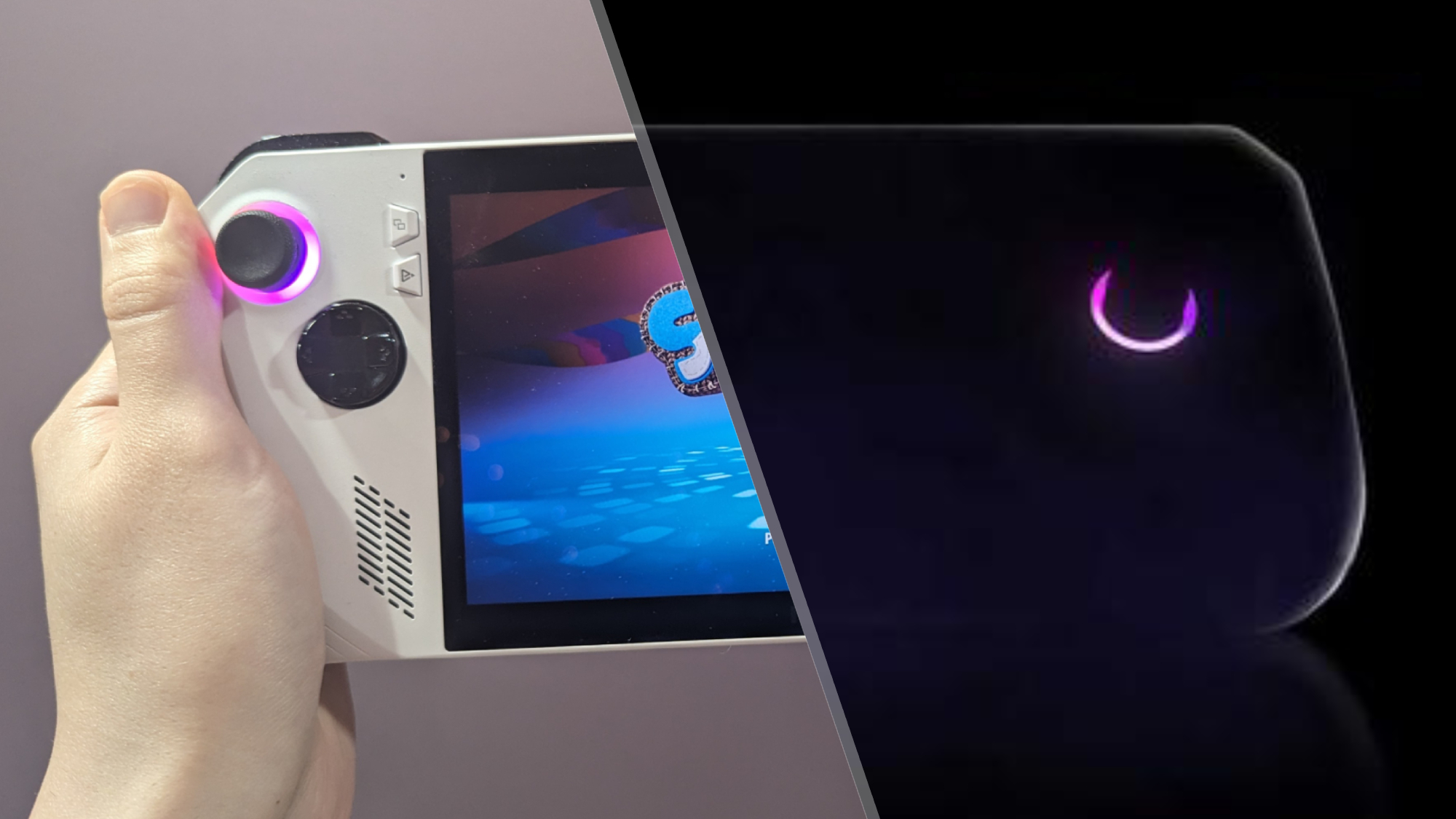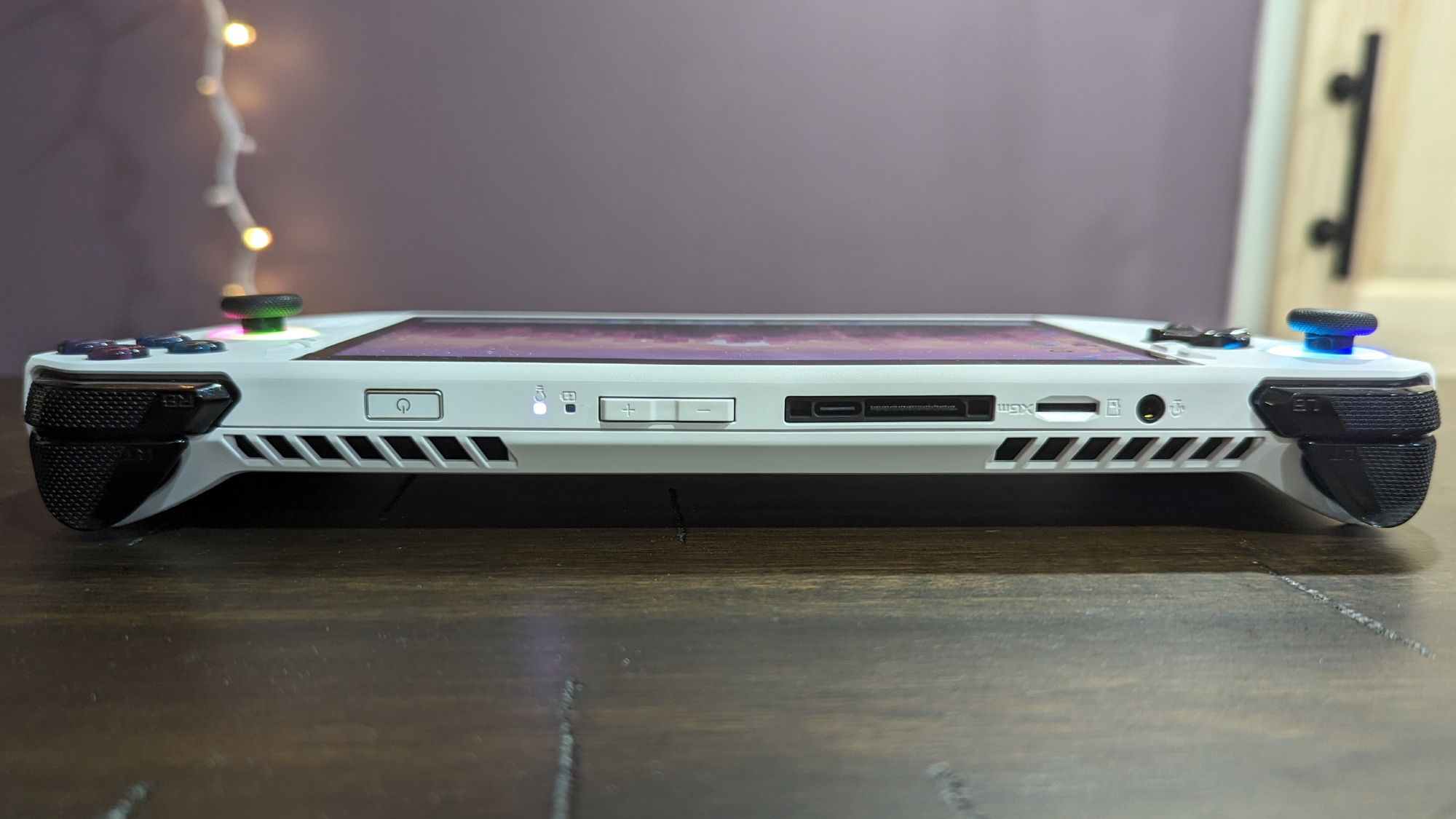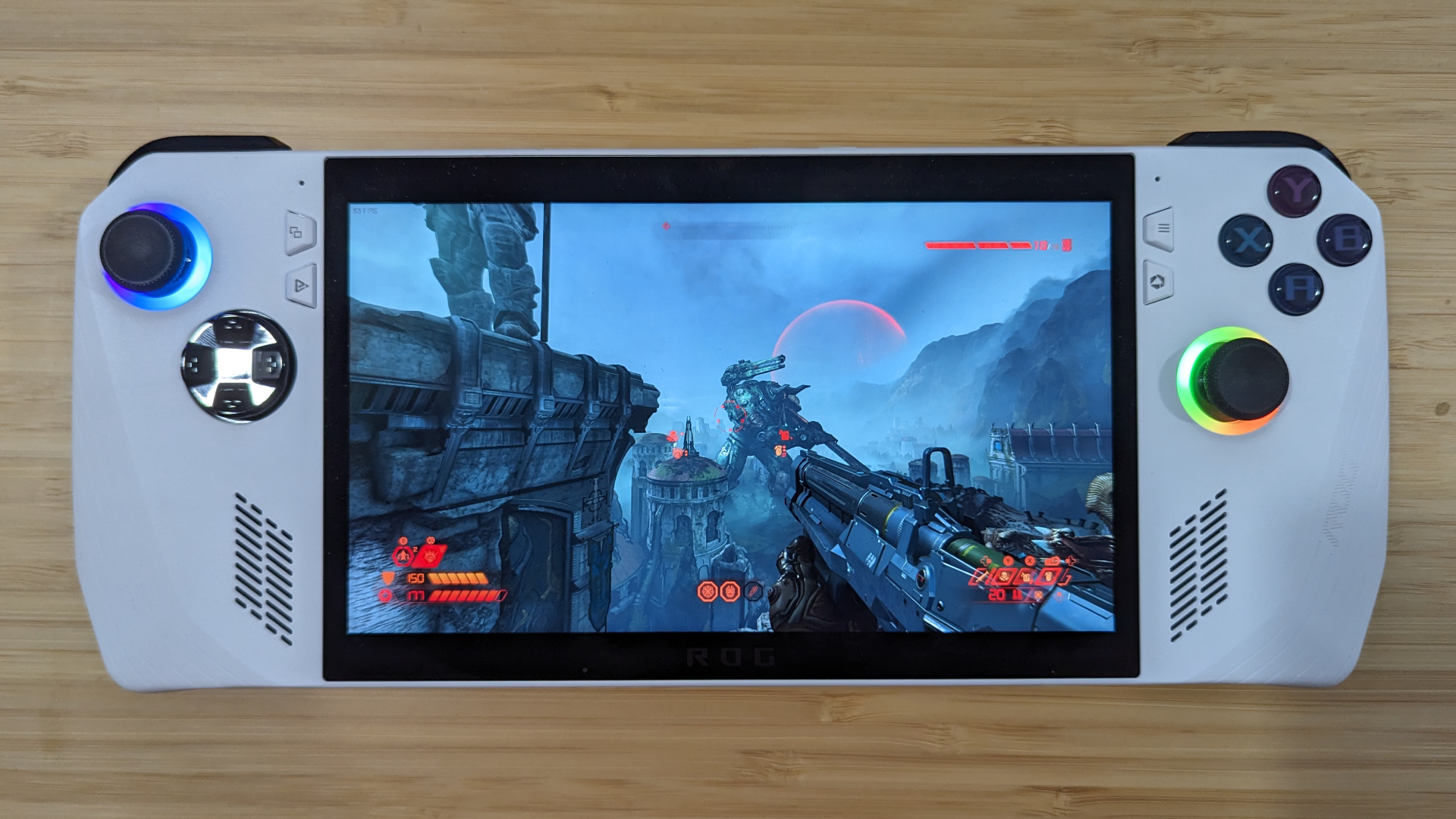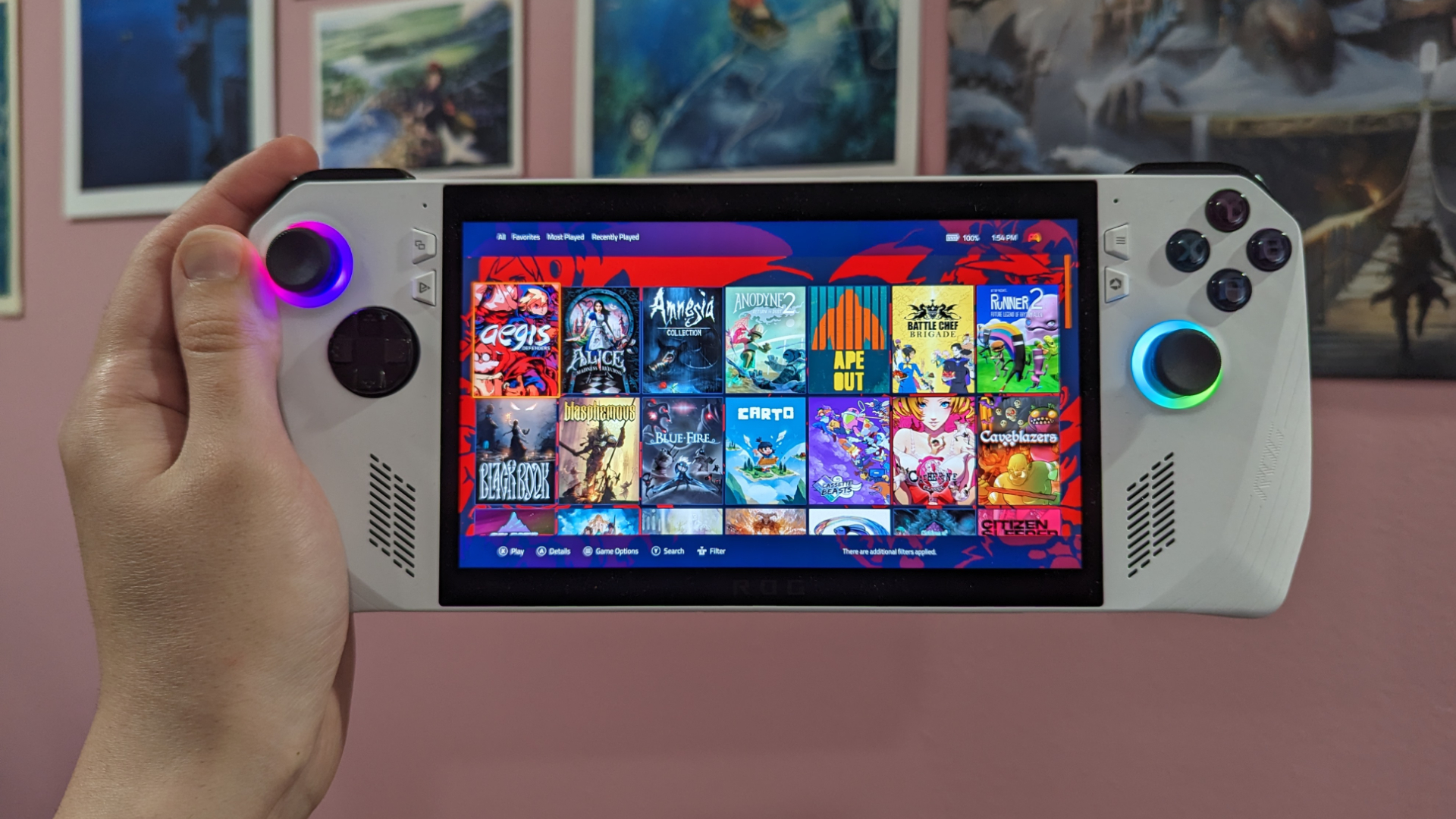
The Asus ROG Ally X was unveiled this week via YouTube livestream, giving gamers a hint as to what’s to come before it’s officially given a full rundown on June 2. Some of these details include its expanded battery, the promise of more ports, changes in its physical design, and improvements to RAM/storage. It will be a higher-end model, likely reserved for the most passionate enthusiasts.
So, if you’re unsure which product is right for you, what should you buy? Here’s our breakdown of the differences between Asus ROG Ally and Asus ROG Ally X.
Asus ROG Ally vs. Asus ROG Ally X: Specs
Asus ROG Ally vs. Asus ROG Ally X: Price and configuration
There are currently two models of the Asus ROG Ally, one with the AMD Ryzen Z1 and another with an AMD Ryzen Z1 Extreme. Their specs are otherwise the same, as ASUS built both with 16GB of RAM, 512GB of SSD storage, and a 7-inch 1920 x 1080-pixel resolution IPS display at a 120Hz refresh rate.
The Asus ROG Ally started at $699 and is often on sale with a $100 cut in its price tag, but the Asus ROG Ally X may take its spot as the original $699 model, with the Z1 Extreme being permanently reduced to $599. From there, the Z1 model may permanently lower to $399—especially since it’s often on sale for that price. However, that could be generous considering what we know about the Ally X. It will feature “improvements” to storage, RAM, ports, battery, and changes in its physical design.
Considering that the original Ally already has 16GB and 512GB of storage, the RAM is almost certain to go up to 32GB, while the storage could be anywhere from 1TB to 2TB. It’s also possible that those improvements aren’t necessarily higher in size, instead, they are the same size but faster. Alongside additional ports—even though we don’t know which ones—and even better battery life, the device being $599 seems far-fetched.
In the live stream announcement of the Asus ROG Ally X, Whitson Gordon, Senior Manager at Content Marketing for Asus ROG, claimed that it’s “built for the enthusiasts who wanted a bit of extra goodies,” which makes it sound like a high-end model reserved for only those willing to pay the most. This could soar up to $899 or $999, but for now, we wait until June 2 to hear a full breakdown.
Asus ROG Ally vs. Asus ROG Ally X: Ports
The Asus ROG Ally features a USB Type C port with DisplayPort 1.4 compatibility, a 3.5mm audio jack, and a microSD card reader. The selection of ports is limited, but Asus ROG has confirmed that the Ally X will be built with more ports. We have yet to determine what exactly these will be, but we can speculate.

As for personal musts, I’d love it if the Ally X had an ethernet connection to make downloading games fast and easy. It may not seem convenient as it’s an on-the-go device, but being able to download games at breakneck speeds while at home so I can quickly cycle games in my library would be enormous. It’d also be great if the USB Type-C port on the Ally turned into a Thunderbolt 4, allowing for further compatibility.
Asus ROG Ally vs. Asus ROG Ally X: Design
The Asus ROG Ally’s button layout, which utilizes traditional Xbox gamepad mapping, will seemingly continue on the Ally X. However, it’s confirmed that it will be black, unlike the original, which utilized a white shell.
In the announcement livestream, Asus ROG Video Producer Jake Kulinski said there would be “some physical changes” before Gordon mimicked pressing triggers and moving joysticks, which could mean anything. The Ally may take notes from Xbox Elite controllers, potentially allowing for interchangeable components, modifiable thumbstick tension, and haptic feedback in the triggers.
Asus ROG Ally vs. Asus ROG Ally X: Display
The Asus ROG Ally features a 7-inch, 1920 x 1080-pixel IPS glossy touchscreen with a refresh rate of 120Hz, response time of 7ms, and compatibility with FreeSync Premium. In our tests, it reproduced 76.1% of the DCI-P3 color gamut and has a maximum brightness of 465 nits.

It’s already confirmed that the Asus ROG Ally and Ally X will feature the same display, as revealed in the announcement video. Gordon claims it will have the “same VRR display,” so we’re not expecting an OLED model, regardless of how much we might want one. Considering that this isn’t the Asus ROG Ally 2 by any means, we’re hoping that a proper successor goes further with display changes and moves from IPS to OLED.
Asus ROG Ally vs. Asus ROG Ally X: Battery
The Asus ROG Ally’s 40WHrs battery left a bit to be desired, lasting 5 hours and 51 minutes on the Laptop Mag battery test, which involves continuous web surfing over Wi-Fi at 150 nits of brightness. While that sounds fine for a non-gaming test, its PCMark 10 test had it last 1 hour and 43 minutes. The more demanding a game is, the lower that number gets, and you might find it dying after an hour of playing.

We don’t know the specs of the Asus ROG Ally X’s new battery. Still, it was a pretty important talking point in the announcement video, with Kulinski saying that it’s “not a small battery improvement” and further confirming that the “battery is very good.” We don’t quite know what that means, but in the Verge exclusive on the Ally X, Asus SVP Shawn Yen told the website that they’re not just looking at a 30 to 40 percent increase, as it’s “way more than that.” If the PCMark 10 hit 3 hours, that’d be incredible.
Asus ROG Ally vs. Asus ROG Ally X: Which should you buy
Even though we don’t have specifics on the specs of the Asus ROG Ally X, we do know that it’s designed for the higher end and will only be for the most intense handheld gaming enthusiasts who want the best battery life, most ports, and highest storage/RAM. We also expect the physical design to be improved in some way, even if the specifics are up in the air.
As a result, you shouldn’t buy the Asus ROG Ally X if you want a more affordable option. Stick with the original models and save tons of money for the same great performance. For expanded storage, more RAM, additional ports, and a longer-lasting battery, the Ally X looks like it will perfectly fulfill those needs.







